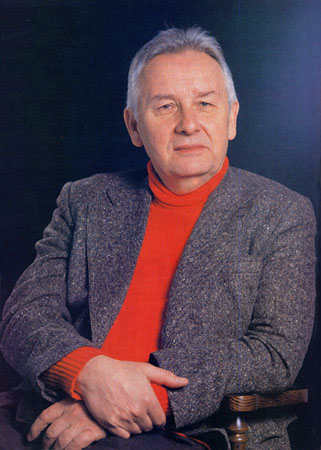In Celebration of the Human Voice - The Essential Musical Instrument
Home | Doo Wop | Barbershop | World | Contemporary | Christian | Vocal Jazz | Choral | Christmas | Instructional | Arrangements
Classical | Opera | Musicals | Personality | Young Singers | Disney | Videos | Songs | The Artists

Henryk Gorecki Biography

Click Here for Sheet Music and Songbook Vocal Arrangements
Henryk Mikolaj Gorecki was a composer of contemporary classical music. He studied at the State Higher School of Music in Katowice between 1955 and 1960. In 1968, he joined the faculty and rose to provost before resigning in 1979. Goecki became a leading figure of the Polish avant-garde during the post-Stalin cultural thaw. His Webernian-influenced serialist works of the 1950s and 1960s were characterized by adherence to dissonant modernism and drew influence from Luigi Nono, Karlheinz Stockhausen, Krzysztof Penderecki and Kazimierz Serocki. He continued in this direction throughout the 1960s, but by the mid 1970s had changed to a less complex sacred minimalist sound, exemplified by the transitional Symphony No. 2 and the hugely popular Symphony No. 3 (Symphony of Sorrowful Songs). This later style developed through several other distinct phases, from such works as his 1979 Beatus Vir, to the choral 1981 hymn Miserere, the 1993 Kleines Requiem fur eine Polka and his requiem Good Night. Until 1992, Gorecki was viewed as a remote and fiery figure known only to a few connoisseurs, primarily as one of a number of composers responsible for sparking a postwar renaissance in Polish music. In 1992, 15 years after it was composed, a recording of his Third Symphony, Symphony of Sorrowful Songs-recorded with soprano Dawn Upshaw and released to commemorate the memory of those lost during the Holocaust-became a worldwide commercial and critical success, selling more than a million copies and vastly exceeding the typical lifetime sales of a recording of symphonic music by a 20th-century composer. As surprised as anyone at its popularity, Gorecki said, "Perhaps people find something they need in this piece of music (...) somehow I hit the right note, something they were missing. Something somewhere had been lost to them. I feel that I instinctively knew what they needed." This popular success did not generate wide interest in Gorecki's other works, and he pointedly resisted the temptation to repeat earlier success, or compose for commercial reward. Apart from two brief periods studying in Paris and a short time living in Berlin, Gorecki spent most of his life in southern Poland. |
Select a Category |
Want to Sing? - Find a Chorus Near You
List of Choruses by State | List of Choruses by City
